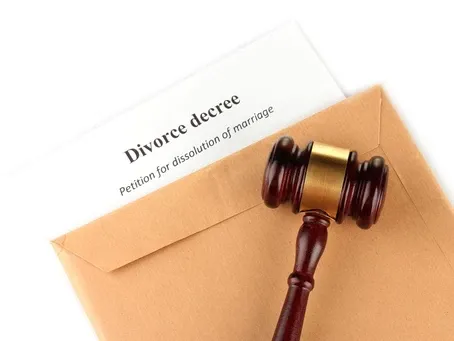What You Need to Know About Your Divorce Trial

When a divorce goes to trial, the goal is to settle the terms of your divorce, particularly any parts of your negotiations you were not able to settle on your own. Prior to your divorce trial, you should know what to expect so you are not blindsided by the process.
When you know what is going to happen, you may have an experience that is smoother and more comfortable. The following are some parts of the trial process you should know about.
How Long Is a Divorce Trial?
Your divorce trial will have a set number of days assigned to it prior to the start of the process. However, this number can differ because the court determines how long the trial will be. And keep in mind that the person who files for divorce will be the first to present his or her side.
How Does a Divorce Trial Begin?
The first part of the process is the opening statements by both attorneys representing each spouse. The goal of the opening statement is for each attorney to briefly summarize the case and the desired results. Before you go to court, your attorney will provide documentation that supports your terms. This documentation gives the judge some insight into your case before the beginning of the trial.
When Do You and Your Witnesses Testify?
When you attend divorce court, you are the most important witness when it comes to providing testimony for your case. Your attorney will help you prepare to testify before you go to court so you will know what to expect.
You will have to answer questions from both your own attorney and your spouse's attorney. Be sure prepare for all possible questions prior to taking the stand. The best way to prepare is by having your attorney question you in a mock trial setting. This method helps ease your nerves and gives you a better idea of what to expect during your divorce trial.
Aside from providing your own testimony, other witnesses may testify on your behalf. Witnesses can include family members, doctors, therapists, teachers, and expert witnesses.
Expert witnesses are those familiar with a particular field of study or expertise, and they will testify to certain facts of a case. Expert witnesses are common in cases of domestic violence, difficult child custody battles, and drug and alcohol abuse.
The judge listens to the testimonies of witnesses to ensure they are a credible source. The information provided during witness testimony can make or break any case. All witnesses must be prepared with credible and factual information that benefits your claim.
How Does a Divorce Trial End?
After the witnesses provide testimony, and all questions are answered, both attorneys make a closing statement. The closing statements follow the same format as the opening statement, but typically include an argument as to why you should receive what you are requesting in your divorce.
During the statement, each attorney will also cite the evidence presented during the trial to reinforce different points. Once both attorneys have presented their closing statements, the court will reach a decision. Your judge may either rule at that time or present the ruling on a different day. Your attorney may also receive the decision to present to you.
Divorce is a difficult process and can be complex based on your circumstances. You should be prepared and know what to expect from the trial process, which is why you need a qualified attorney on your side to help you. If you have any questions about your divorce or how the trial will proceed, please contact the our team at Kalasnik Law Office.